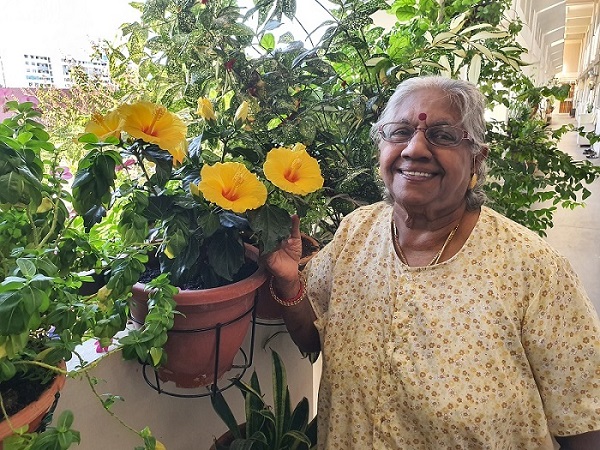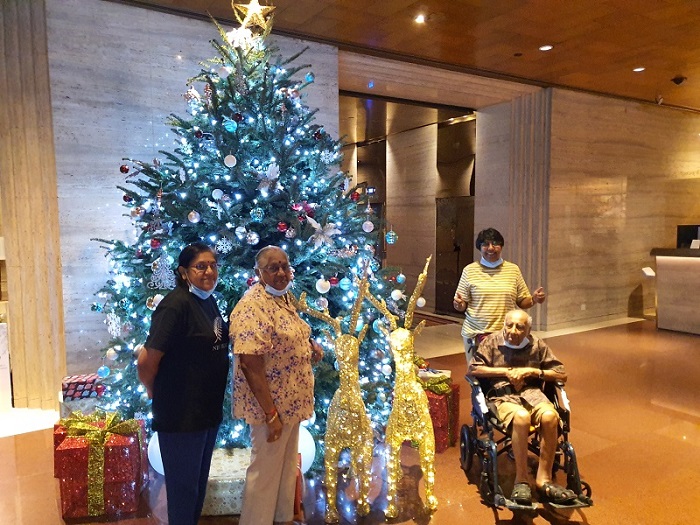Families For Life | Keeping the Extended Family Together Despite a Pandemic
Before COVID-19, Families for Life Council Member Ms K. Thanaletchimi never had a dull moment at home on the weekends. Her brother and sister’s families would come over to visit her elderly parents, as 13 people packed into her executive maisonette that buzzed with conversations and laughter.
But it all abruptly stopped when the pandemic struck. As circuit breaker measures kicked in, the closely knitted group of 13 was suddenly reduced to a quiet quartet of Ms Thanaletchmi, her parents, and their domestic helper.
The silence at home became unnerving. Her 89-year-old father, who suffers from mild dementia, could not understand what was going on.
“He would always ask me: ‘Where’s your brother, sister and nieces and nephews? Why did they abandon me?’” recalled the 54-year-old who has three nieces and two nephews.
Being cooped up at home also caused her mother, 80, to be emotionally and mentally affected. Gardening provided the only respite. And while she could previously rely on sibling support to care for her parents, the circuit breaker made her a one-woman show who had to settle their daily needs.

Photo credit: Ms K. Thanaletchimi
Add in a job that sometimes saw her clocking 15-hour work days, and she was close to her limit. “Mentally, I was very exhausted,” said the President of the Healthcare Services Employees’ Union. “It was a very difficult and trying time for me and my family.”
But the tough times produced some valuable life lessons. Her siblings’ physical absence in those seven weeks has led to them developing an even greater appreciation for each other. Now, with the help of technology, they have found new practices that have strengthened their bond.
“We became even closer,” she said. “The pandemic was a good testament to how painful it was when we literally could not see and touch each other. We cannot take each other for granted.”
When Ageing Seniors Meets Modern Technology
To breach the distance, the family replaced the weekend visits with Whatsapp and Zoom video calls. But this sometimes proved to be difficult for the elderly parents, who had only ever used the house phone.
“They’ve never done all these in their life. Sometimes, I have to tell them where to look at on the screen,” she said with a laugh.
But the new practice has allowed them to keep up with new family events. Last June, they became great-grandparents when one of Ms Thanaletchmi’s nieces gave birth to a baby boy. Now, they have frequent virtual playdates with him on Zoom.
The siblings also created a Whatsapp group among themselves to better coordinate the care for their parents and arrange for separate visits in light of the current restrictions. Now, her parents get to receive even more visits from their children.

Photo credit: Ms K. Thanaletchimi
The past year has seen Ms Thanaletchni growing to cherish the emotional support that her family provides.
“The pandemic has given a lot of challenges to all of us,” she said. “And all these challenges can only be overcome with mental resilience, teamwork, and humanity. That is where love from your family is important.”